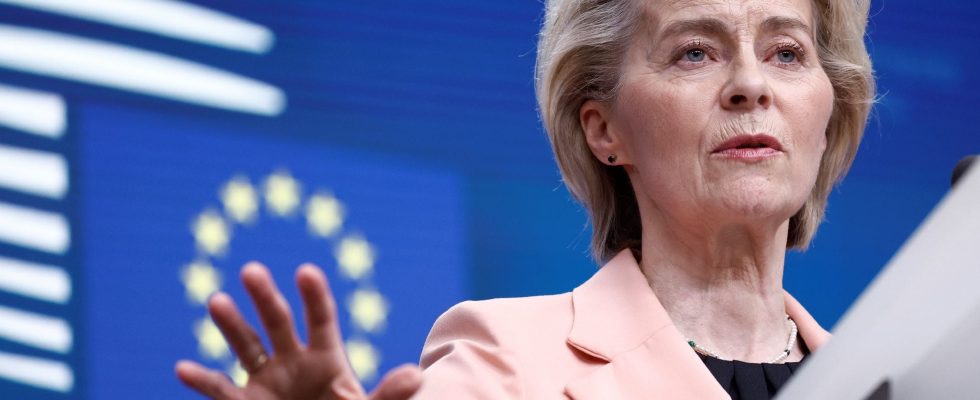This is an existential geopolitical battle that is playing out alongside the war in Ukraine, and in part because of the war in Ukraine. The European Union must imperatively enlarge, in particular to stem the imperialist and hegemonic ambitions of Putin’s Russia. In December 2023, the 27 heads of state or government thus approved the future map of the EU, intended to include Ukraine, Moldova, Georgia and the Western Balkans (Albania, Bosnia-Herzegovina, Kosovo, Macedonia). North, Montenegro, Serbia). But how ? And at what price?
While these countries are for some war grounds (Ukraine) or torn by territorial claims (Serbia, Kosovo, Bosnia, Moldova, Georgia), how to push back its borders without exciting nationalist movements, how to expand from 27 to 36 States (just that!) without being diluted into an amorphous mass which would have on its adversaries, like Putin’s Russia, Xi Jinping’s China or Donald Trump’s America, the opposite effect of the expected political force?
What are we actually expanding?
No strategy, no road map, no consultation accompanies this fundamental transformation which has been decided. Sylvie Goulard, a former centrist MEP who knows nothing about the qualities and faults of the great Brussels machinery, rightly fears that the Europeans will treat the subject too lightly. In a little book whose title seems to be taken from a very moderately optimistic tale, Europe swelled so much that it collapsed (ed. Tallandier), it asks the right question: “What are we expanding?” A political Europe which “recognizes the rights of citizens, defends values, organizes solidarity across borders and which aims to be equipped with its own diplomatic and military means just as it has a currency”? Or a commercial Europe centered on the market, useful to businesses but “with limited ambitions”?
Unless it is only a matter of persisting in this “mirage Europe” which partly resembles that of today, “made of national selfishness, devoid of its own budget, hampered by the veto and pusillanimity” ? A Europe without a foreign policy and whose defense remains “a disorderly pile-up of national resources”?
Indignation
These last few weeks have given reason to this unfortunately structuring indecision. Faced with Putin’s war, European leaders are united and mobilized as they have never been. In its collective will, European defense has taken a giant step forward. But stewardship does not follow. Where is the “war economy” hammered home so many times, notably by Emmanuel Macron? On Thursday April 11, Russian ballistic missiles destroyed the largest thermal power plant south of kyiv, during a series of sustained attacks on buildings and civilian infrastructure.
The Ukrainians are requesting at least seven Patriot anti-missile batteries to defend their bombed cities. Six countries have them in Europe (Germany, Sweden, Netherlands, Greece, Romania, Spain), and only Germany reacted quickly. In the European Parliament, Belgian liberal MEP Guy Verhofstadt was rightly indignant at the fine words of solidarity from Europeans, incapable of taking action in an emergency. Parliament refused to vote for the discharge of the European Council’s budget (to validate it), as long as the latter had not organized the sending of the necessary Patriots.
Time for choices
Europe must choose. Do its member states want to constitute a great power so as to impose themselves against the “great predators which dot the world” or “remain a thing bogged down by successive enlargements”? The EU is dominated by a “varied” European Council, made up of nationally elected heads of state or government, which remains, contrary to the clichés conveyed by populists, much more national than it is European.
In a forum with former MP Dany Cohn-Bendit (The world of April 11), Sylvie Goulard continues her reflection. They say the big word: “Federal Europe”. We can already hear the detractors: “Horror! The end of nations!” It is the opposite: if nations do not strengthen together, they will disappear together. Let’s stop beating around the bush.
Marion van Renterghem is a senior reporter, winner of the Albert-Londres prize and author of “Piège Nord Stream” (Arènes)
.
